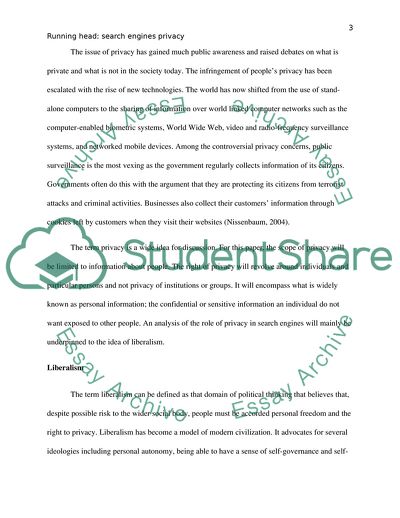Cite this document
(Role of Privacy in Search Engines Essay Example | Topics and Well Written Essays - 2000 words, n.d.)
Role of Privacy in Search Engines Essay Example | Topics and Well Written Essays - 2000 words. https://studentshare.org/information-technology/1817071-critically-assess-the-role-of-privacy-in-search-engines-and-discuss-in-reference-to-liberalism
Role of Privacy in Search Engines Essay Example | Topics and Well Written Essays - 2000 words. https://studentshare.org/information-technology/1817071-critically-assess-the-role-of-privacy-in-search-engines-and-discuss-in-reference-to-liberalism
(Role of Privacy in Search Engines Essay Example | Topics and Well Written Essays - 2000 Words)
Role of Privacy in Search Engines Essay Example | Topics and Well Written Essays - 2000 Words. https://studentshare.org/information-technology/1817071-critically-assess-the-role-of-privacy-in-search-engines-and-discuss-in-reference-to-liberalism.
Role of Privacy in Search Engines Essay Example | Topics and Well Written Essays - 2000 Words. https://studentshare.org/information-technology/1817071-critically-assess-the-role-of-privacy-in-search-engines-and-discuss-in-reference-to-liberalism.
“Role of Privacy in Search Engines Essay Example | Topics and Well Written Essays - 2000 Words”. https://studentshare.org/information-technology/1817071-critically-assess-the-role-of-privacy-in-search-engines-and-discuss-in-reference-to-liberalism.


